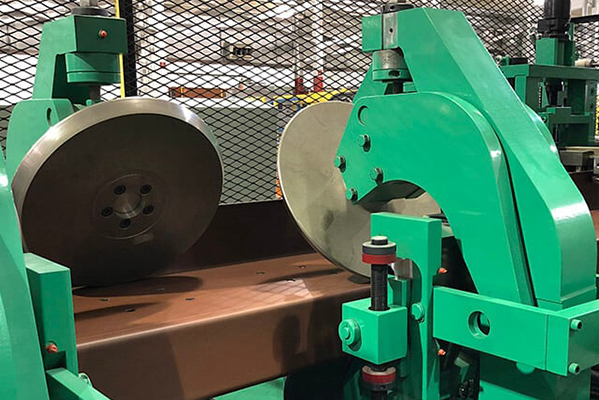Navigation Menu
Contact Us
- Email:
- info@wxavatar.com
- Address:
- Yurong Village, Yuqi Street, Huishan District, Wuxi, China.
Release Date:Mar 29, 2025 Visit:77 Source:Roll Forming Machine Factory
Panel roll forming equipment is a highly efficient and versatile manufacturing system used to produce continuous metal panels with precise cross-sectional profiles. By feeding a metal strip through a series of rollers, the machine gradually shapes the material into panels used in construction, automotive, aerospace, and other industries. This article explores the key applications of panel roll forming equipment and why it is a preferred method for mass-producing high-quality metal panels.
Primary Applications of Panel Roll Forming Equipment
1. Construction Industry
One of the most common uses of panel roll forming is in the construction sector, where durable and lightweight metal panels are essential.
Roofing & Wall Cladding – Roll-formed metal sheets are widely used for roofing and exterior wall panels due to their weather resistance, durability, and aesthetic flexibility.
Structural Components – Steel studs, purlins, and decking panels are often roll-formed for use in commercial and residential buildings.
Gutters & Downspouts – Custom-shaped gutters and drainage systems are efficiently produced using roll forming.
2. Automotive Industry
The automotive sector relies on roll forming for high-strength, lightweight metal parts.
Chassis & Frame Components – Roll-formed metal beams and reinforcements provide structural integrity.
Body Panels & Trim – Door frames, bumpers, and decorative trim are often made using roll forming for consistency and cost efficiency.
Exhaust Systems – Some exhaust pipes and heat shields are manufactured using roll forming.
3. Appliance Manufacturing
Home and industrial appliances frequently use roll-formed panels for their enclosures and structural parts.
Refrigerators & Ovens – Metal casings and internal supports are roll-formed for precise fit and durability.
HVAC Ductwork – Air conditioning and ventilation systems use roll-formed sheet metal for ducts and vents.
Washing Machines & Dryers – Outer panels and internal brackets are often produced using roll forming.

4. Aerospace & Transportation
Lightweight yet strong materials are crucial in aerospace and transportation, making roll forming an ideal manufacturing method.
Aircraft Interiors – Overhead bins, seat frames, and paneling often use roll-formed aluminum.
Railway & Bus Components – Train and bus body panels, flooring, and structural parts are roll-formed for consistency and strength.
5. Energy & Solar Panel Framing
Renewable energy systems, particularly solar panels, use roll-formed metal supports.
Solar Panel Mounting Frames – Aluminum and steel frames for solar arrays are often roll-formed for precision and corrosion resistance.
Wind Turbine Components – Some structural parts of wind turbines are manufactured using roll forming.
6. Storage & Shelving Systems
Roll-formed metal is widely used in storage solutions due to its strength and adaptability.
Warehouse Racking & Shelving – Metal beams and supports are roll-formed for durability.
Industrial Cabinets & Lockers – Office and factory storage units often use roll-formed panels.
Advantages of Using Panel Roll Forming Equipment
High-Speed Production – Capable of producing long, continuous panels with minimal downtime.
Cost-Effective – Lower per-unit cost compared to stamping or extrusion for large volumes.
Material Efficiency – Minimizes waste by precisely shaping metal strips.
Design Flexibility – Can produce complex profiles with tight tolerances.
Consistency & Quality – Ensures uniformity across large production runs.
Conclusion
Panel roll forming equipment is a crucial manufacturing solution across multiple industries, from construction and automotive to aerospace and renewable energy. Its ability to produce high-quality, consistent, and cost-effective metal panels makes it indispensable in modern fabrication. As technology advances, roll forming machines continue to improve, offering even greater precision and automation for industrial applications.